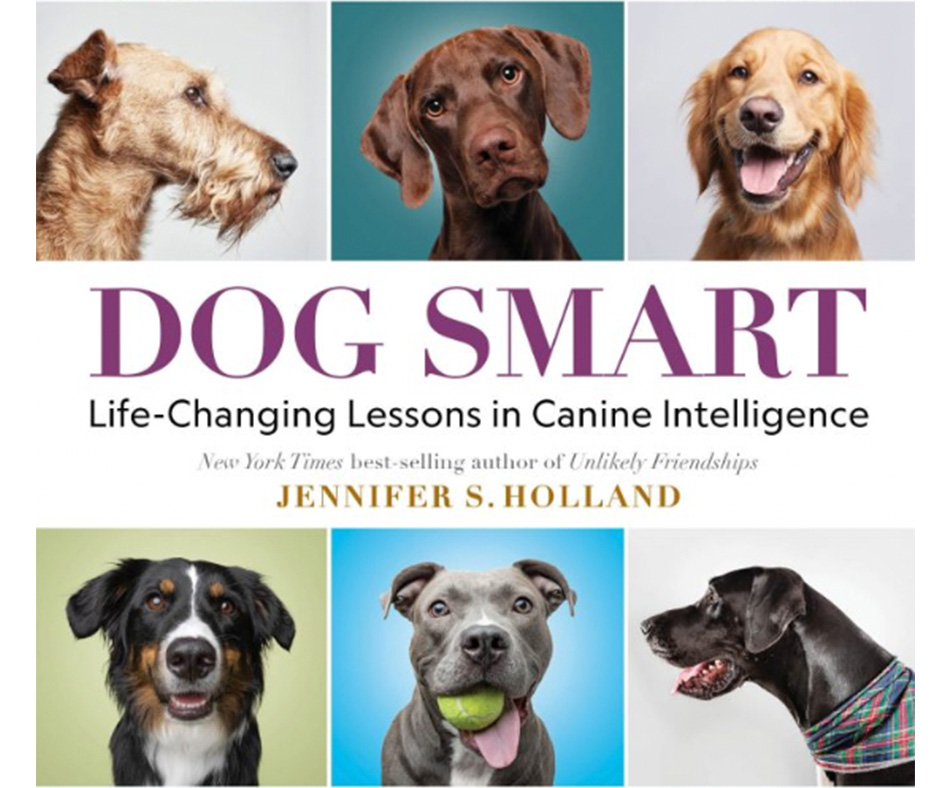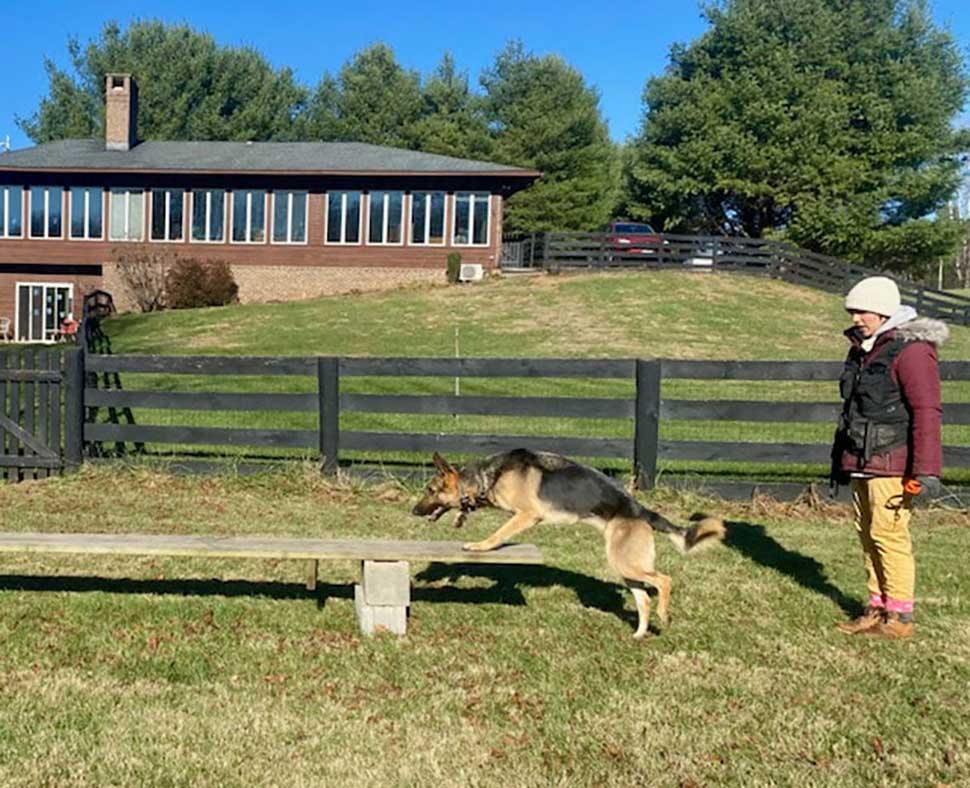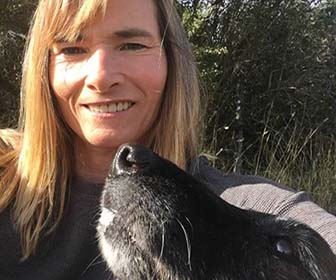665 – Research Shows How Dogs are Affected by Human Emotion
Research Shows How Dogs are Affected by Human Emotion
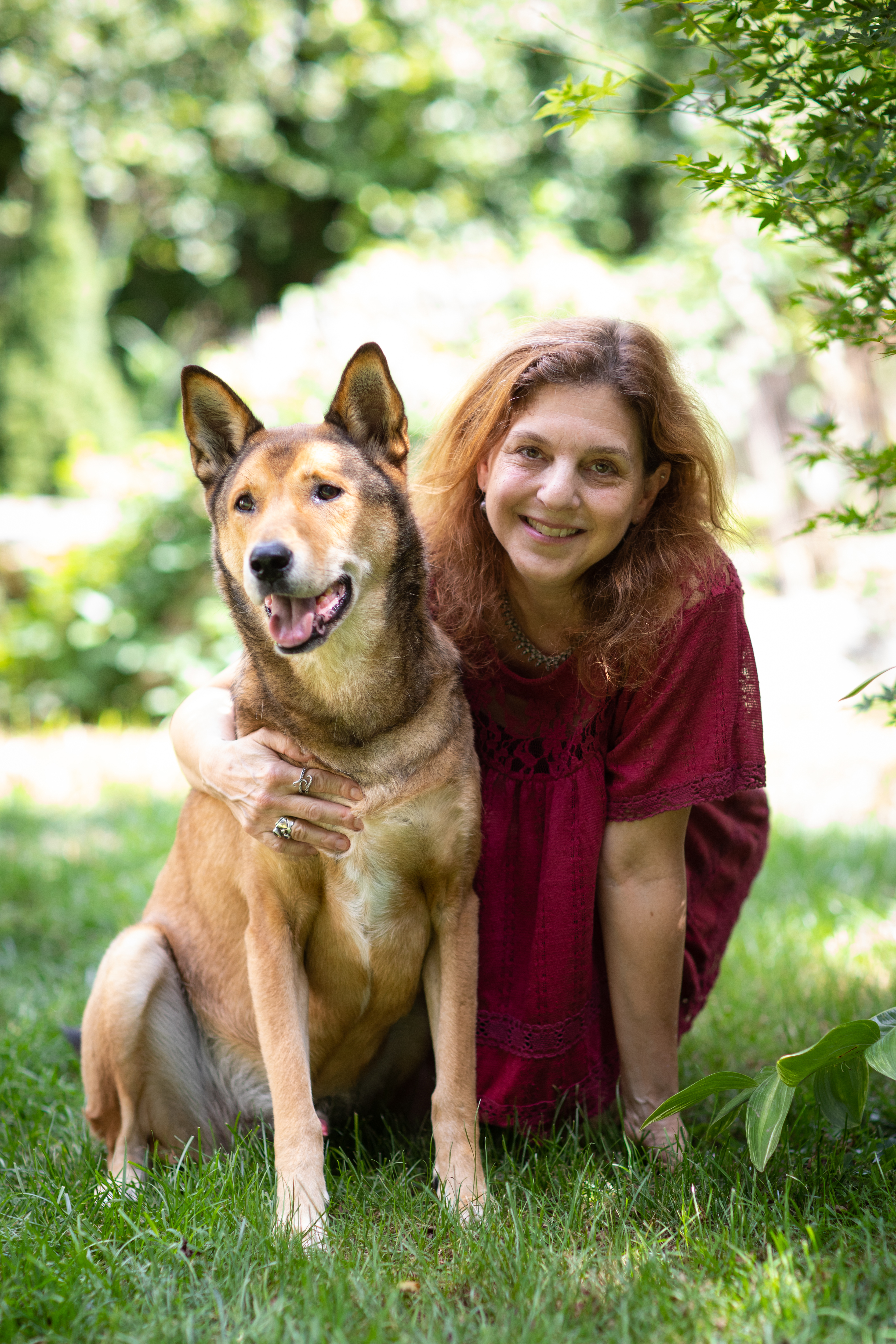
Author Jennifer Holland with her dog.
Author Jennifer Holland joins host Laura Reeves to discuss her new book “Dog Smart: Life-Changing Lessons in Canine Intelligence.” This cutting-edge science narrative, chock-full of heartwarming case studies, is one woman’s quest to learn the true meaning of dog intelligence and how they are affected by human emotion.
Holland interviews trainers and handlers of various working dogs doing their jobs. She was led by a seeing eye dog through the streets of Manhattan and took a sleeve hit in a protection dog training demo.
“I have some video of it,” Holland said, “and my head just sort of flops around like a rag doll. And the dog did not want to let go. It took a little while to actually pry him off of me and I got a good bruise.
“But again, what I was trying to think about was how you train this animal that, here we’ve, you know, raised them to be sweet and loving animals. I was told training them to bite a person is a really hard thing to do because they don’t necessarily want to do that.
“And so it has to be a game. It has to be a game for them. The sleeve is a sleeve. It’s not a person and then to be able to train them to stop if they’re in mid bite. And here they’re getting that thrill and you have to tell them no, the bad guy has waved the white flag. It was remarkable to me that dog can stop and have that self control.”
Laura commented that the part of the book that really jumped out at her was research showing that puppies who were given unhappy or negative sweat smell grew up to be unhappy negative puppies. And the ones that were given a happy sweat smell grew into well-adjusted, happy dogs.
“(Dogs) are just so affected by us in that way,” Holland added. “Just the importance of our level of stress or for them the feeling that we’re feeling good is important to how they respond and how they behave. It just shows that incredible kind of co-evolution that’s happened and that bond that we have that really I think makes (dogs) particularly special.”
573 – Search and Rescue Titling Events Come to US
Search and Rescue Titling Events Come to US
Melissa Stagnaro, vice president of the American Rettungshunde Sport Association (ARSA), joins host Laura Reeves to share details of the growing Search and Rescue Sport titling events in the US.
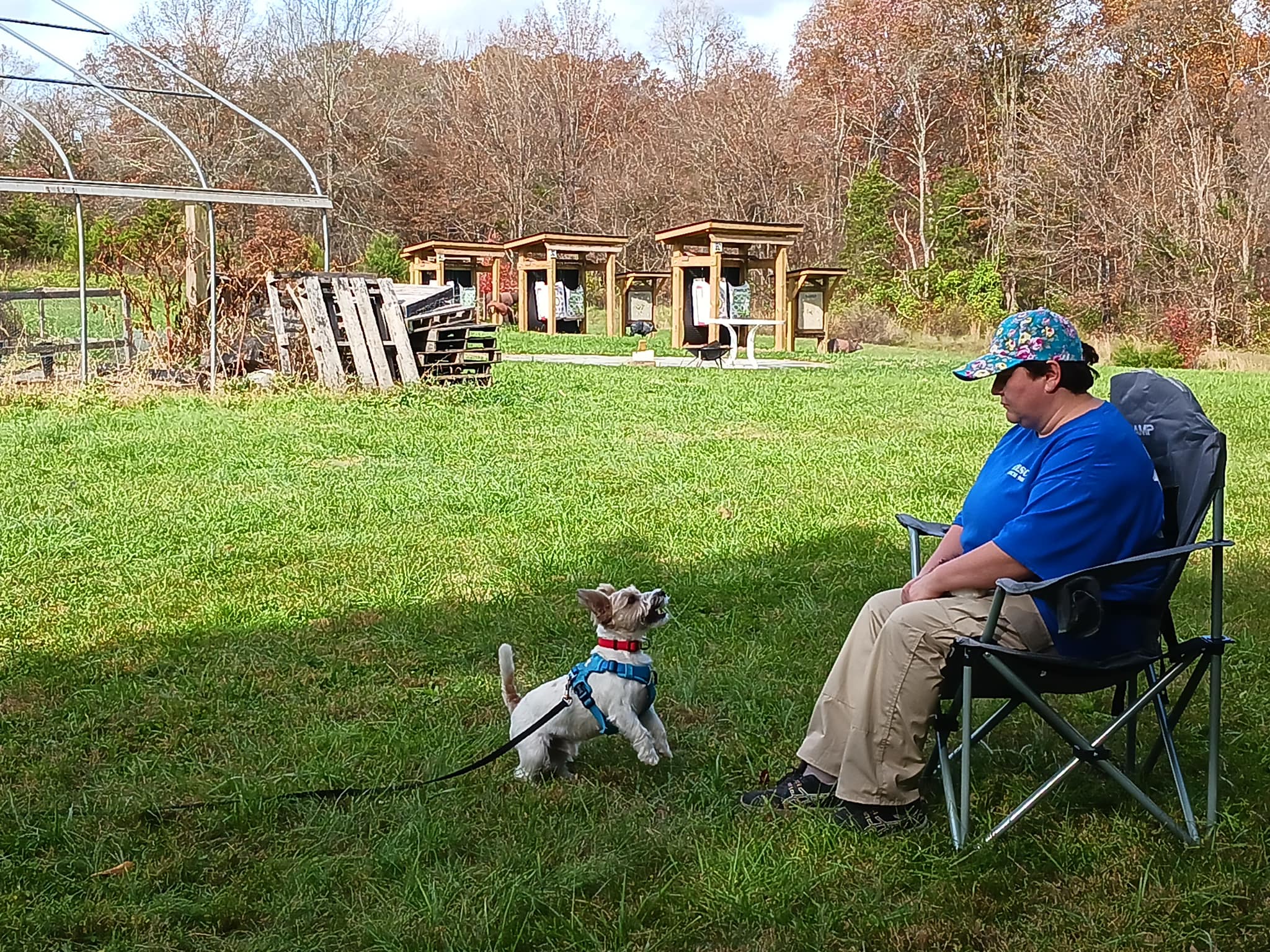
Dog working in an ARSA test.
“ARSA started out of a need for some standardizations,” Stagnaro said. “There was an earthquake and flooding in Armenia in the late 1980s and a lot of kind-hearted people showed up to help and it was hard to ascertain what their skill level was. This included search and rescue dog handler teams, but it also included EMT’s and nurses and people like that. And so sometimes the well-intentioned helpers caused a little more trouble than help.
“So the United Nations worked with the FCI and out of this came an International Rescue dog organization. And so the rule book that we’re using is standard across the globe. Most countries, other than the US, use this as their basis for their local community SAR teams.”
ARSA offers these tests as a way for people to do titling events that could, if they stick with it and find their dog has the aptitude and they have the aptitude, take them to the point that they could do full on search and rescue missions.
“There’s three sport levels that get progressively more difficult, and there’s a fourth mission ready level,” Stagnaro said. “So the mission ready, if you and your dog were to complete it successfully, you would be a real search and rescue team certified by the FCI rulebooks. The three other levels are just sport.
“There’s a lot of search and rescue community-based groups in the US and also sheriff’s departments who would be more interested in accepting a volunteer that already has the skills. In the US we have many certifications for search and rescue teams, but if you came to them and said, hey look, my dog already has these skills, then they would have an easier time assessing you. None of the sport skills are in conflict with real search and rescue.”
The ARSA 2023 Championship is March 31 – April 1 in Leesburg, VA.
Listen in to the full episode for more details on this fun new sport.
507 — Denise Fenzi on “Drive” vs “Arousal” in Dogs
Denise Fenzi on “Drive” vs “Arousal” in Dogs
Denise Fenzi, Founder of the famous Fenzi Dog Sport Academy, joins host Laura Reeves for Part 1 of this powerful and thoughtful conversation about what drives our dogs to the behaviors we see.
Denise and Laura discuss the difference between drive and arousal, and how that impacts on our dogs, particularly performance dogs, and some of the things that we as breeders need to consider when making breeding decisions.
“In the make-up of the dog, you’ve got the very bottom level,” Fenzi said. “Let’s call that instinct. Those are things that the dog does to stay alive. If you have a highly predatory dog and a rabbit goes by, the dog doesn’t think about what it’s going to do it goes. That’s the very bottom basic level. I will tell you that, in my opinion, this is where drives are rooted. So, the very bottom level is instinct in my opinion it is the hardest to change.
“Instinctually driven behaviors are very resistant to change. This is both good and bad because this is why your hunting dog goes out for an hour and does the thing. It’s painful, it’s hot, it’s tired, it’s cranky and it just keeps doing it and maybe it doesn’t even know why it keeps doing it, it just does the thing.
“One level up is the emotional level. That is where you have fear. Anxiety is linked to fear, it’s irrational fear, like you don’t even know why you’re afraid you’re just feeling anxious. You have happiness, you have anger, you have joy, you have caretaking for your young. So let’s call that the emotional level. Arousal can come from either one of those places… the bottom level the predatory drive instinctual base level, or it can come from the emotional level.
“Drive has a focus. Arousal is scattered movement. Focus sort of ties it altogether. If you have drive for a thing then you have to have focus or you just went out of drive. Now you’re looking at something else. Arousal gets complicated, because arousal can look like drive. (But) a dog can be in arousal and have no drive whatsoever.”
Listen to the whole show above to hear more.
Fenzi has titled dogs in obedience (AKC and UKC), tracking (AKC and schutzhund), schutzhund (USA), mondioring (MRSA), herding (AKC), conformation (AKC), and agility (AKC). She has two AKC obedience champions, perfect scores in both schutzhund and Mondio ringsport obedience, and is well known for her flashy and precise obedience work.
While a successful competitor, Fenzi’s real passion lies in training dogs and solving the problems that her own dogs and her students’ dogs present. She is a recognized expert in developing drive, motivation, and focus in competition dogs, and is known internationally as an engaging speaker and an expert in no-force training for sport dogs. She has consistently demonstrated the ability to train and compete with dogs using motivational methods in sports where compulsion is the norm.

